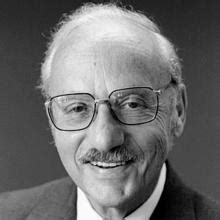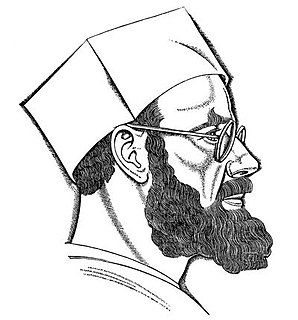A Quote by Henry Adams
In practice, such trifles as contradictions in principle are easily set aside; the faculty of ignoring them makes the practical man.
Related Quotes
It seems to us that in intelligence there is a fundamental faculty, the alteration or the lack of which, is of the utmost importance for practical life. This faculty is judgment, otherwise called good sense, practical sense, initiative, the faculty of adapting one's self to circumstances. A person may be a moron or an imbecile if he is lacking in judgment; but with good judgment he can never be either. Indeed the rest of the intellectual faculties seem of little importance in comparison with judgment.
It will not do merely to listen to great principles. You must apply them in the practical field, turn them into constant practice. What will be the good of cramming the high - sounding dicta of the scriptures? You have first to grasp the teachings of the Shastras, and then to work them out in practical life. Do you understand? This is called practical religion.
The practical man demands an appearance of reality at least. Always dealing in the concrete, he regards mathematical terms not as symbols or thought but as images of reality. A system acceptable to the mathematician because of its inner consistency may appear to the practical man to be full of contradictions because of the incomplete manner in which it represents reality.
We're sitting in here, and I'm supposed to be the franchise player, and we in here talking about practice. I mean, listen, we're talking about practice, not a game, not a game, not a game, we talking about practice. Not a game. Not, not... Not the game that I go out there and die for and play every game like it's my last. Not the game, but we're talking about practice, man. I mean, how silly is that?.. And we talking about practice. I know I supposed to be there. I know I'm supposed to lead by example... I know that... And I'm not... I'm not shoving it aside, you know, like it don't mean anything. I know it's important, I do. I honestly do... But we're talking about practice man. What are we talking about? Practice? We're talking about practice, man.
Look around you and look at history. You will see the achievements of man’s mind. You will see man’s unlimited potentiality for greatness, and the faculty that makes it possible. You will see that man is not a helpless monster by nature, but he becomes one when he discards that faculty: his mind. And if you ask me, what is greatness? I will answer, it is the capacity to live by the three fundamental values of John Galt: reason, purpose, self-esteem.
The great multinationals are unwilling to face the moral and economic contradictions of their own behavior - producing in low-wage dictatorships and selling to high-wage democracies. Indeed, the striking quality about global enterprises is how easily free-market capitalism puts aside its supposed values in order to do business. The conditions of human freedom do not matter to them so long as the market demand is robust. The absence of freedom, if anything, lends order and efficiency to their operations.
Contradictions have always existed in the soul of [individuals]. But it is only when we prefer analysis to silence that they become a constant and insoluble problem. We are not meant to resolve all contradictions but to live with them and rise above them and see them in the light of exterior and objective values which make them trivial by comparison.








































